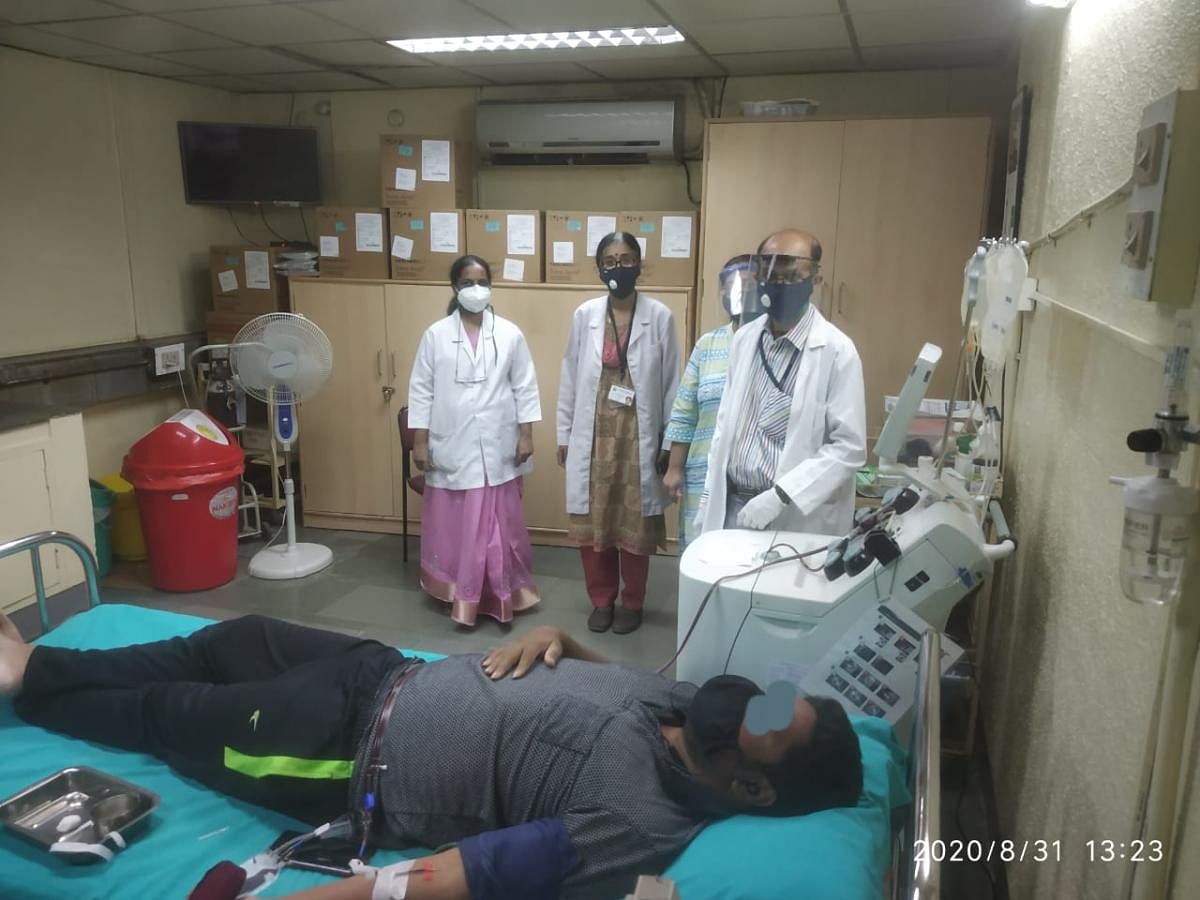
The demand for plasma therapy to treat Covid-19 infection is on the rise, but donors are not easy to come by.
Lack of awareness keeps prospective donors away, doctors say. Many patients who have recovered are afraid their antibodies may come down if they donate plasma.
“This is not true,” says Dr Srivalli, transfusion medicine specialist. “We take only a small part of plasma from the body.” The upper limit is 500 ml per person and a recovered patient can donate not more than twice a month.
Many blood banks have witnessed an increased demand for plasma, confirms Dr Ankit Mathur, additional medical director, Rotary TTK Blood Bank, Bangalore Medical Services Trust. “We get requests for plasma from five to 10 patients in a day,” he says.
Anyone between 18 and 60 years, who has completed 28 days post-recovery and is within 60 kg can donate plasma.
“As for female donors, only those who have never been pregnant can donate plasma,” he adds.
Convalescent plasma is obtained from individuals who have recovered from Covid, and the antibodies are expected to provide passive immunity, explains Dr Sanjiv Lewin, chief of medical services at a leading hospital.
“If it contains high neutralising antibody titers and is given early in the course of disease it may be effective, but evidence is lacking,” he says.
Recovered patients are indeed apprehensive about a lot of things, says Dr Sitalakshmi, professor and head transfusion medicine.
“Ignorance and lack of a systematic effort at the time of discharge are some factors that keep donors away. At the lab level, non-availability of equipment to measure antibody levels and shortage of licensed plasma collections are other factors.” She also says that evidence available at present is unclear if this therapy is effective.
Dr C R Jayanthi, director and dean, Bangalore Medical College and Research Institute, feels plasma donation helps.
“Patients who have recovered from Covid 19 may possess adequate neutralising antibodies. When plasma from a recovered patient is given to a patient recovering from the disease, the antibodies might kill the virus,” explains Dr Jayanthi.
Rs 5,000 as incentive
Dr C N Ashwathnarayan, deputy chief minister, says the government is doing its bit to encourage plasma donors.
“We pay Rs 5,000 to anybody who donates plasma,” he says. He plans to rope in popular faces to promote plasma donation. “The antibody level wouldn’t be as strong in everybody, it disappears and reduces with time. Those recovered will have to donate soon after the 28-day period,” he says.
Donors urge others to donate
Dr B V Murali Krishna, additional commissioner of commercial taxes (eGovernance) and his family members tested positive for Covid in June. “My daughters and I donated plasma. If we could help save lives, then why not?” says Murali Krishna. He put out a video, as early as June, urging people to donate plasma and not nurse any fears. “It is fear that keeps people back,” he says. Geethanjali M N and her husband Rajesh R, a software professional, are also donors. “My father developed Covid. He was critical and put on ventilator support. After multiple attempts, plasma therapy saved his life. His recovery was fast,” says Geethanjali.
“We were told that our level of antibodies is strong. We are willing to donate as many times as necessary,” Rajesh says.
Who can donate plasma?
Recovered Covid patients.
Age between 18 and 60.
Below 60 kg.
Best for patients with...
Respiratory difficulty
Low oxygen saturation
Co-morbid conditions
Plasma banks
Bangalore Medical Services Trust: 8526723404
HCL Plasma helpline: 7447118949